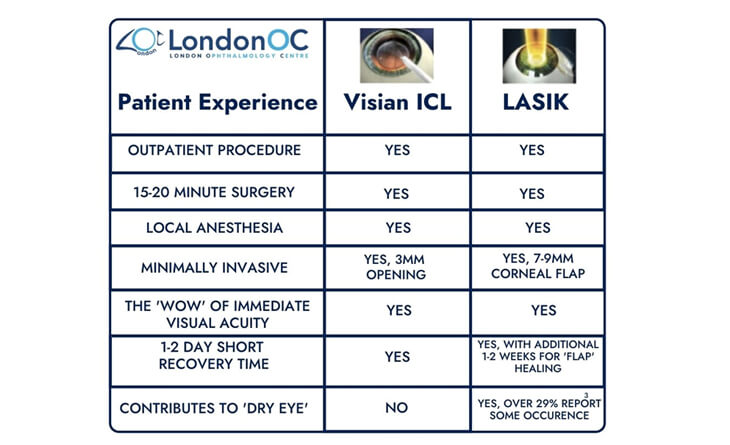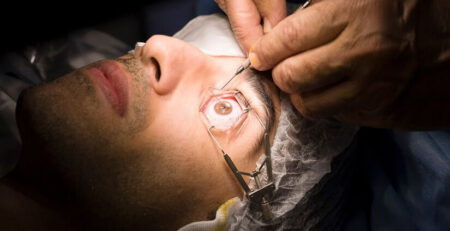ICL vs LASIK – Which is Best for You?
Are you struggling with refractive errors like nearsightedness (myopia), farsightedness (hyperopia), or astigmatism and want to remove and dream of clear vision without glasses or contact lenses? Advancements in medical technology have brought various effective procedures to the forefront.
ICL (implantable contact lens) and LASIK (Laser-assisted in situ keratomileusis) are the most common procedures for correcting refractive errors. While both aim to correct vision, each is required in different eye situations and conditions. However, understanding the difference between ICL and LASIK surgery will allow you to decide which operation is best for you.
What is LASIK?
First, we will understand what LASIK is and in which conditions it is preferred.
LASIK is the most commonly performed refractive surgery that uses a laser to correct vision by reshaping the cornea, the clear front part of the eye. This allows light entering the eye to be properly focused onto the retina, resulting in clearer vision.
During the procedure, a thin corneal flap is created, and an excimer laser is used to reshape the cornea. After reshaping the cornea, the flap is repositioned. LASIK surgery is known for its quick recovery and significant improvement in vision, often eliminating the need for glasses or contact lenses.
LASIK is best suited for people with a stable prescription and sufficient corneal thickness. It is an effective treatment for those looking to correct nearsightedness, farsightedness, or astigmatism. However, it is not suitable for everyone. If your cornea is thin, or very steep or the glass power is very high, your eye doctor will not recommend LASIK.

What is ICL?
ICL surgery involves permanently implanting a thin lens made of biocompatible Collamer material into the eye to correct refractive defects such as myopia (nearsightedness), hyperopia (farsightedness), and astigmatism.
Unlike LASIK surgery, ICL does not involve the removal of any corneal tissue. An ophthalmologist creates a tiny incision in the cornea to access the front part of the eye. The ICL lens is then carefully placed behind the iris. The specially designed lens works in conjunction with the eye’s natural lens to precisely focus light onto the retina, considerably improving visual clarity.
ICL surgery is used when a patient is not a good candidate for LASIK. This might be for a variety of reasons:
- The cornea is too thin to do LASIK safely
- The patient has high myopia (nearsightedness)
- The cornea is abnormally shaped or steep, making LASIK risky or unsuccessful. For example, in the case of stable keratoconus, a condition where the cornea thins and bulges outward, ICL is a good option.
Now you might be wondering if ICL or LASIK is best for you. The answer is that the choice between ICL and LASIK primarily depends on your eye condition, corneal health, refractive error and the suitability of each procedure.
Both ICL and LASIK surgery have their own benefits and are adapted to specific patient needs. Remember, what works for one person may not be appropriate for another. Therefore, if you are considering vision correction surgery, you should contact an experienced eye doctor like Dr Anisha Gupta in Delhi, who can evaluate your eyes and recommend the best treatment option, depending on your unique situation.











